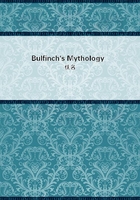
第44章
Minerva and Arachne. Niobe. The Story of Perseus Minerva, the goddess of wisdom, was the daughter of Jupiter.
She, they say, sprang forth from his brain full grown and clad in complete armor. She presided over the useful and ornamental arts, both those of men, such as agriculture and navigation, and those of women, spinning, weaving, and needle-work. She was also a warlike divinity; but a lover of defensive war only.
She had no sympathy with Mars's savage love of violence and bloodshed. Athens was her chosen seat, her own city, awarded to her as the prize of a contest with Neptune, who also aspired to it. The tale ran that in the reign of Cecrops, the first king of Athens, the two deities contended for the possession of the city.
The gods decreed that it should be awarded to that one who produced the gift most useful to mortals. Neptune gave the horse; Minerva produced the olive. The gods gave judgment that the olive was the more useful of the two, and awarded the city to the goddess; and it was named after her, Athens, her name in Greek being Athene.
In another contest, a mortal dared to come in competition with Minerva. That mortal was Arachne, a maiden who had attained such skill in the arts of weaving and embroidery that the nymphs themselves would leave their groves and fountains to come and gaze upon her work. It was not only beautiful when it was done, but beautiful also in the doing. To watch her, as she took the wool in its rude state and formed it into rolls, or separated it with her fingers and carded it till it looked as light and soft as a cloud, or twirled the spindle with skilful touch, or wove the web, or, when woven, adorned it with her needle, one would have said that Minerva herself had taught her. But this she denied, and could not bear to be thought a pupil even of a goddess. "Let Minerva try her skill with mine," said she; "if beaten, I will pay the penalty." Minerva heard this and was displeased. Assuming the form of an old woman, she went and gave Arachne some friendly advice. "I have had much experience,: said she, "and I hope you will not despise my counsel. Challenge your fellow-mortals as you will, but do not compete with a goddess.
On the contrary, I advise you to ask her forgiveness for what you have said, and, as she is merciful, perhaps she will pardon you."Arachne stopped her spinning, and looked at the old dame with anger in her countenance. "Keep your counsel," said she, "for your daughters or handmaids; for my part, I know what I say, and I stand to it. I am not afraid of the goddess; let her try her skill, if she dare venture." "She comes," said Minerva; and dropping her disguise, stood confessed. The nymphs bent low in homage, and all the bystanders paid reverence. Arachne alone was unterrified. She blushed, indeed; a sudden color dyed her cheek, and then she grew pale. But she stood to her resolve, and with a foolish conceit of her own skill rushed on her fate. Minerva forbore no longer, nor interposed any further advice. They proceed to the contest. Each takes her station and attaches the web to the beam. Then the slender shuttle is passed in and out among the threads. The reed with its fine teeth strikes up the woof into its place and compacts the web. Both work with speed;their skilful hands move rapidly, and the excitement of the contest makes the labor light. Wool of Tyrian dye is contrasted with that of other colors, shaded off into one another so adroitly that the joining deceives the eye. Like the bow, whose long arch tinges the heavens, formed by sunbeams reflected from the shower (this description of the rainbow is literally translated rom Ovid), in which, where the colors meet they seem as one, but at a little distance from the point of contact are wholly different.
Minerva wrought on her web the scene of her contest with Neptune.
Twelve of the heavenly powers are represented, Jupiter, with August gravity, sitting in the midst. Neptune, the ruler of the sea, holds his trident, and appears to have just smitten the earth, from which a horse has leaped forth. Minerva depicted herself with helmed head, her AEgis covering her breast. Such was the central circle; and in the four corners were represented incidents illustrating the displeasure of the gods at such presumptuous mortals as had dared to contend with them. These were meant as warnings to her rival to give up the contest before it was too late.
Arachne filled her web with subjects designedly chosen to exhibit the failings and errors of the gods. One scene represented Leda caressing the swan, under which form Jupiter had disguised himself; and another, Danae, in the brazen tower in which her father had imprisoned her, but where the god effected his entrance in the form of a shower of gold. Still another depicted Europa deceived by Jupiter under the disguise of a bull.
Encouraged by the tameness of the animal, Europa ventured to mount his back, whereupon Jupiter advanced into the sea, and swam with her to Crete. You would have thought it was a real bull so naturally was it wrought, and so natural was the water in which it swam. She seemed to look with longing eyes back upon the shore she was leaving, and to call to her companions for help.
She appeared to shudder with terror at the sight of the heaving waves, and to draw back her feet from the water.